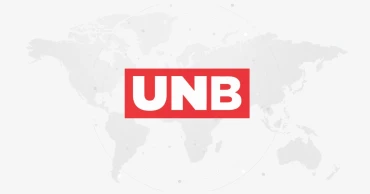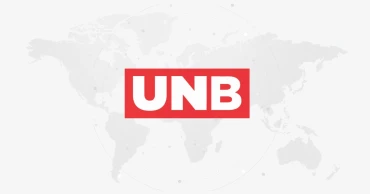COVID-19 challenges
Covid vaccines should be declared as global public goods: PM Hasina
Prime Minister Sheikh Hasina on Tuesday said Bangladesh firmly believes that coronavirus vaccines should be declared as global public goods and called for a strong partnership to tackle COVID-19 challenges.
The pandemic, she noted, has brought mankind at a crossroad of human history confronting possibly the gravest global challenge of our times.
“The socio-economic impacts of the pandemic are massive and are still unfolding. It is, therefore, extremely important to strengthen the global and regional partnerships through coordinated efforts to address these challenges,” she said.
Prime Minister Hasina said this in her prerecorded video speech at the opening plenary of the four-day annual conference Boao Forum for Asia (BAF) titled “A world in change: Join hands to strengthen global governance and advance Belt and Road Initiative (BRI) Cooperation”.
Partnership and Connectivity
Sheikh Hasina focused on three issues –
First, the need for strong partnership to address the challenges posed by the pandemic, and to make vaccines available to everyone by declaring it as global public goods;
Second, the need to work together for harnessing the power of technology as the future will be driven by the 4IR, which comes with opportunities and challenges, and
4 years ago
UAE lauds PM Hasina's leadership in managing COVID-19 challenges
United Arab Emirates (UAE) State Minister for Foreign Affairs and International Cooperation Ahmed Ali Al Sayegh on Monday lauded the wise and visionary leadership of Prime Minister Sheikh Hasina for achieving spectacular economic and social progress as well as managing the challenges of Covid-19.
5 years ago
'Right assessment of Covid-19 challenges through data collection, research crucial'
A proper assessment of the challenges posed by the pandemic is crucial through data collection and research. Without regular data collection and surveys, informed policymaking will not be possible.
5 years ago
Coronavirus & Agenda 2030: Dhaka seeks meaningful global partnership
Bangladesh has called for a robust and meaningful global partnership for timely implementation of the Agenda 2030 for reducing the risk of future disasters and deal with Covid-19 challenges.
5 years ago
Dhaka seeks greater int'l solidarity, cooperation to tackle COVID-19 challenges
She identified universal and affordable access to vaccines, financing SDGs gap, ending the growing trends of poverty and inequality, supporting the migrant workers, reversing the falling trend of export earnings, ensuring the benefits of digitisation to all, and addressing climate and biodiversity emergencies as the top priorities of Bangladesh.
She was addressing the General Debate of the Second Committee at the UN General Assembly on Thursday.
In the face of the extraordinary situation due to the COVID-19 pandemic, the committee decided to centre it
5 years ago
PM for vigorous, well-coordinated global response to face Covid-19 challenges
Prime Minister Sheikh Hasina on Wednesday put emphasis on a vigorous, well-coordinated and worldwide response from countries, international organisations, civil society organisations and private sector to face the challenges of COVID-19 pandemic.
"The United Nations and international organizations will be at the centre of all recovery measures to be supported by G-7, G-20, OECD and international financial institutions," she said.
The Prime Minister said this in a recorded video message played at the ILO’s ‘Global Leaders’ Day’ that took place through digital platform.
She said that everything happening all around us, the promises of decent jobs for all seems hard to realise individually."But I am convinced that together, we can do it."
Sheikh Hasina said that coronavirus does not discriminate but its adverse impacts severely discriminates against the vulnerable, especially the migrants and women workers.
In this regard she put forward her three suggestions. These are firstly, jobs of migrant workers at the overseas markets must be retained during this crisis; secondly, in case of lay-off, compensation and other dismissal benefits must be paid in full along with ensuring their safety and health benefits; and lastly, after the pandemic, these workers would have to be recruited for reactivating the economy.
"I must here mention the huge loss of jobs of our migrant workers and the resulting shortfall in remittance. It is a great concern for us as remittance is a key component to achieve the SDGs," she said.
Currently, she said, repatriation of these jobless migrant workers has proved to be a huge challenge. The World Bank predicted that Bangladesh will lose more than 20 percent of its earnings from remittance.
"Under these circumstances, we may remember the Centenary Declaration of ILO where all of us recognized to transform our world through technological innovation, demographic shifts, climate change and globalisation."
The Prime Minister said that the global COVID-19 pandemic that has affected nations, especially workers the most.
"This global calamity has now threatened the very base of globalization and connectivity that all of us have carefully built over the years. This is no longer just a health problem but becomes a full-fledged global economic and social crisis," she said.
Like many other crises, Sheikh Hasina said, the LDCs and developing countries are facing the main burden although the crisis did not start with them.
During this pandemic, she said that domestic and external supply chains were severely disrupted.
"We lost export orders of billions of dollars, many of our industries were closed and millions of workers lost their jobs. Our small industries lost most of its resources and markets, and above all, our agriculture suffered huge loss due to supply chain disruption."
She also said in this situation, Bangladesh is hosting 1.1 million forcibly evicted Rohingyas from Myanmar.
Regarding Bangladesh's steps to face COVID-19 the Prime Minister said that when the crisis of COVID-19 began to unfold, the government immediately announced a 12.1-billion-dollar stimulus package for various sectors of economy as well as support different segments of the society. This support package is equivalent to 3.7 percent of the country's GDP.
To support workers in export industries, she said the government has given about 1 billion dollar for paying wages of the workers.
"We provided cash and other incentives directly to more than 50 million people who lost their daily income during this pandemic," she said.
5 years ago
Speakers for strong coordination between govt, NGOs to face Covid challenges
Speakers in a virtual dialogue on Wednesday underscored the need for a strong coordination among the government institutions and the NGOs to tackle the challenges created by the COVID-19 pandemic in the country.
5 years ago
MoFA discusses ways to overcome COVID-19 challenges
Current and former diplomats have suggested short term and long term plans to effectively overcome challenges in the current and post-COVID-19 era.
5 years ago
Experts for converting COVID-19 challenges into opportunities
Experts at a virtual dialogue have discussed ways to convert the current challenges posed by the COVID-19 pandemic into opportunities through proper recovery measures, keeping Bangladesh on the right track of development.
They said Bangladesh must pursue it as there would be sunshine amid clouds that the COVID-19 brought which is truly a global catastrophe.
Cosmos Foundation, the philanthropic arm of Cosmos Group, organised the webinar as part of Cosmos Dialogue, titled “Impact of COVID-19 on Bangladesh: Prognosis for Recovery" on Friday night connecting experts from home and abroad virtually.
Chairman of Cosmos Foundation Enayetullah Khan delivered the welcome speech at the webinar chaired by Dr Iftekhar Ahmed Chowdhury, the Principal Research Fellow at the Institute of South Asian Studies, National University of Singapore, and former Foreign Affairs Adviser to Bangladesh’s previous caretaker government.
5 years ago


.jpg)

.jpg)
.jpg)
.jpg)
.jpg)
.jpg)

